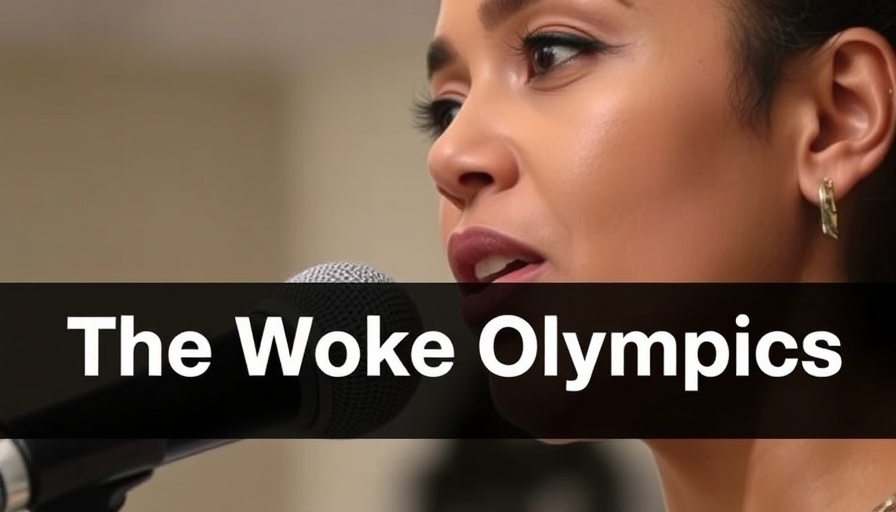
Unpacking the Hype: The Woke Olympics
The phrase 'Woke Olympics' may seem like a satirical jab at the ongoing culture wars, but for many, it encapsulates a serious and complex dialogue about political correctness, anti-Semitism, and the implications of elected officials’ rhetoric. The latest discussions featured in The Woke Olympics delve into how these conversations are fostering divisions within political camps, particularly on the right.
In 'The Woke Olympics,' the discussion dives into the escalating tensions surrounding anti-Semitism, exploring key insights that sparked deeper analysis on our end.
The Rise of Polarity: Politicians and Their Discourse
Recently, Randy Fine—a Florida representative—has drawn ire for his controversial comments regarding the Gaza Strip. Political reactions have escalated, highlighting how he’s gained support for positions that many find extreme. Politically charged phrases have become commonplace, with Fine's declaration that “Gaza must be destroyed” igniting debates about morality, ethics, and the turmoil that anti-Semitism stirs in the conversation. Such stark statements make one question the implications of political endorsements that could be interpreted as turning a blind eye to hateful beliefs, as illustrated by past endorsements from notable political figures.
DeSantis and the Anti-Semitism Narrative
Florida's Governor Ron DeSantis has also found himself in the crosshairs, accused of being anti-Semitic despite his previous efforts against it. His tangled political relationships, including working alongside Fine, underscore a complex dynamic of loyalty and backlash. The irony is palpable: who's really 'woke' when anti-Semitism is discussed in such conflicting ways?
Understanding the Backlash
The discussions surrounding behaviors and beliefs within political figures reflect a broader trend where accusations are weaponized. This sentiment was detailed passionately in the video, with calls for a more just political conversation that recognizes the damage that words and statements can inflict. As we dissect these moments, an urgent question rises: How are we allowing phrases and ideologies to shape our understanding of one another?
If you find the discourse around anti-Semitism and its growing presence alarming, it’s time to engage with this conversation seriously. Understanding where leaders stand on such significant topics can lead us toward enlightenment and perhaps create closer alliances across ideological lines.
 Add Row
Add Row  Add
Add 




Write A Comment